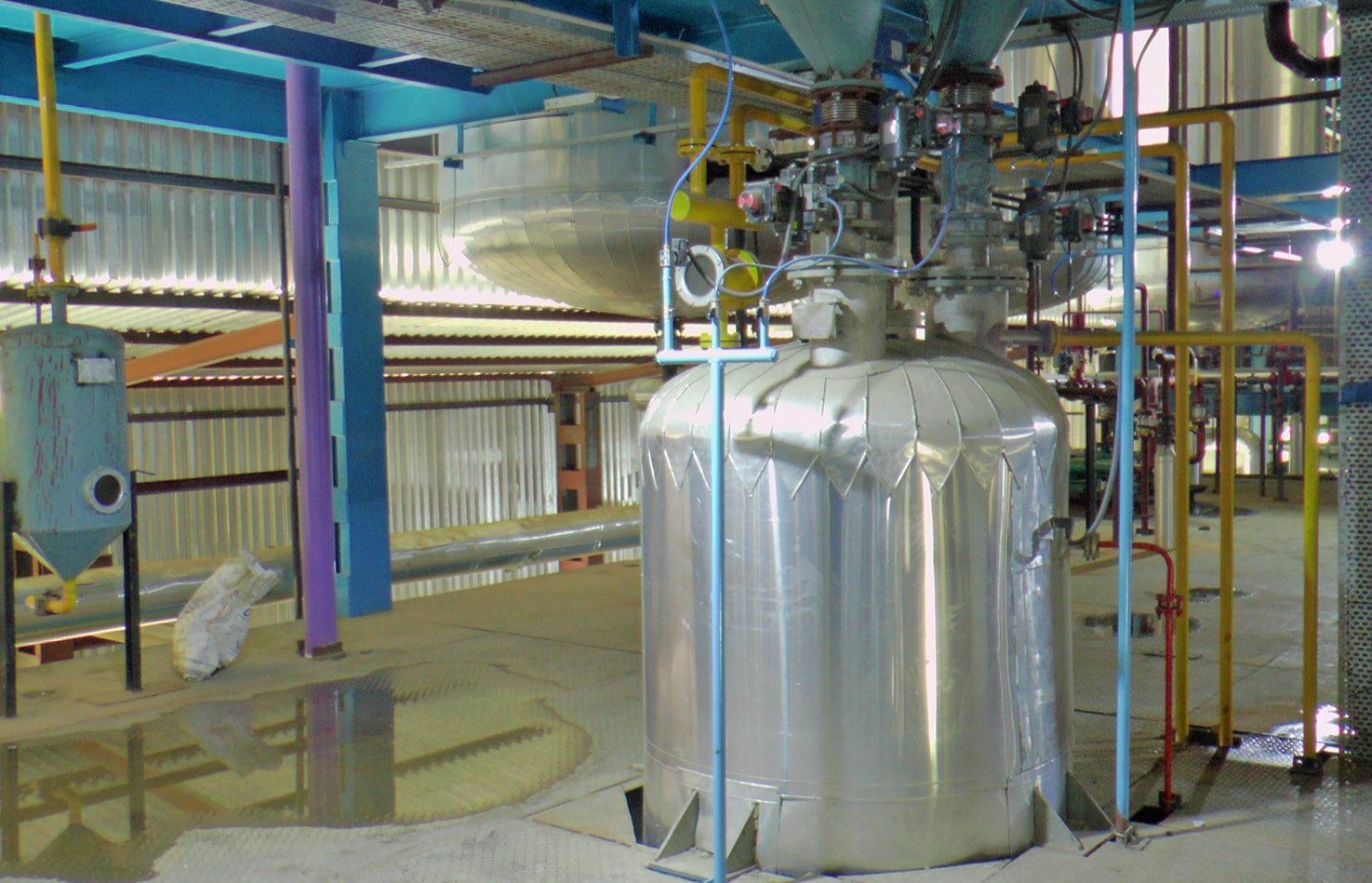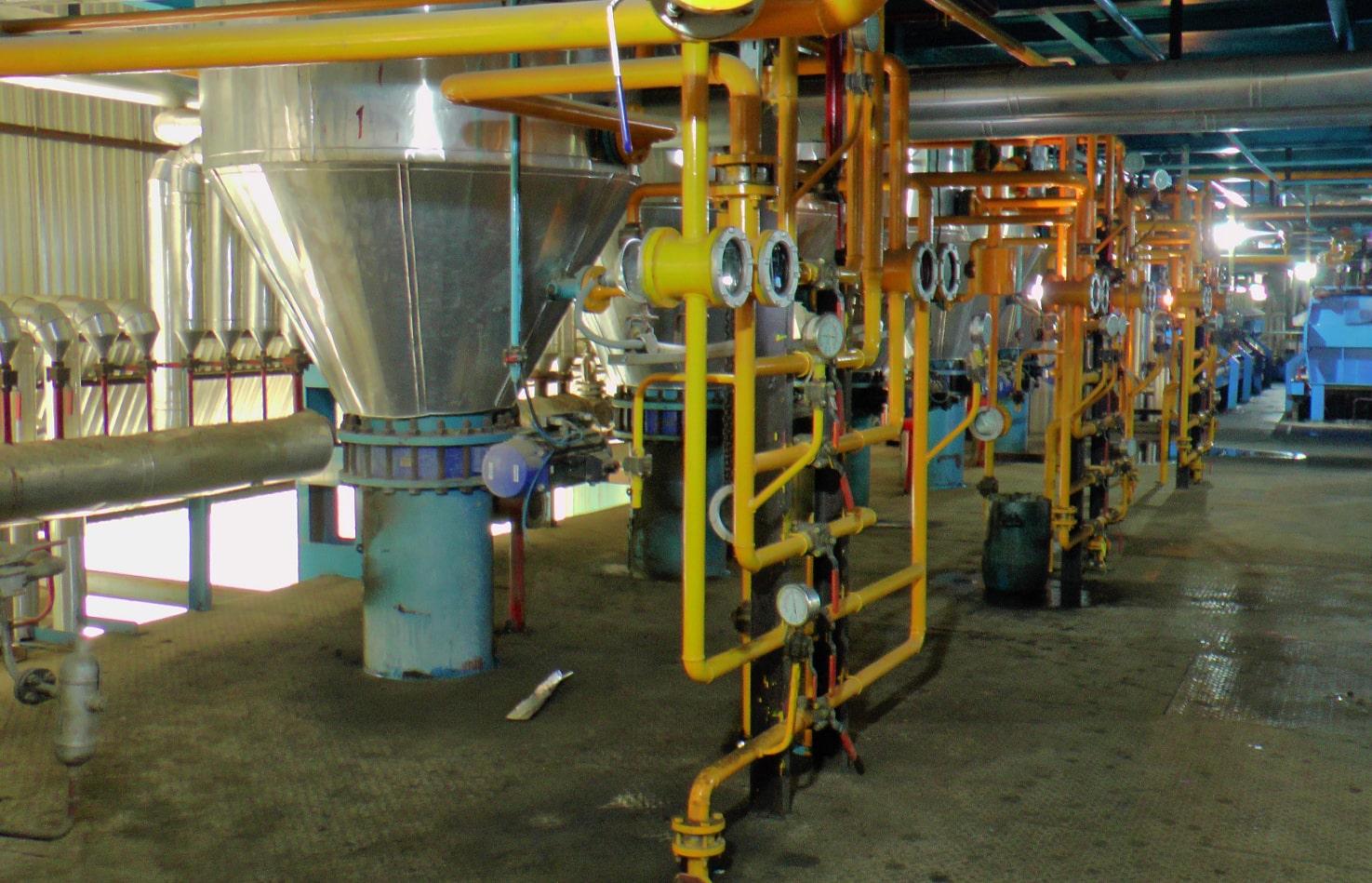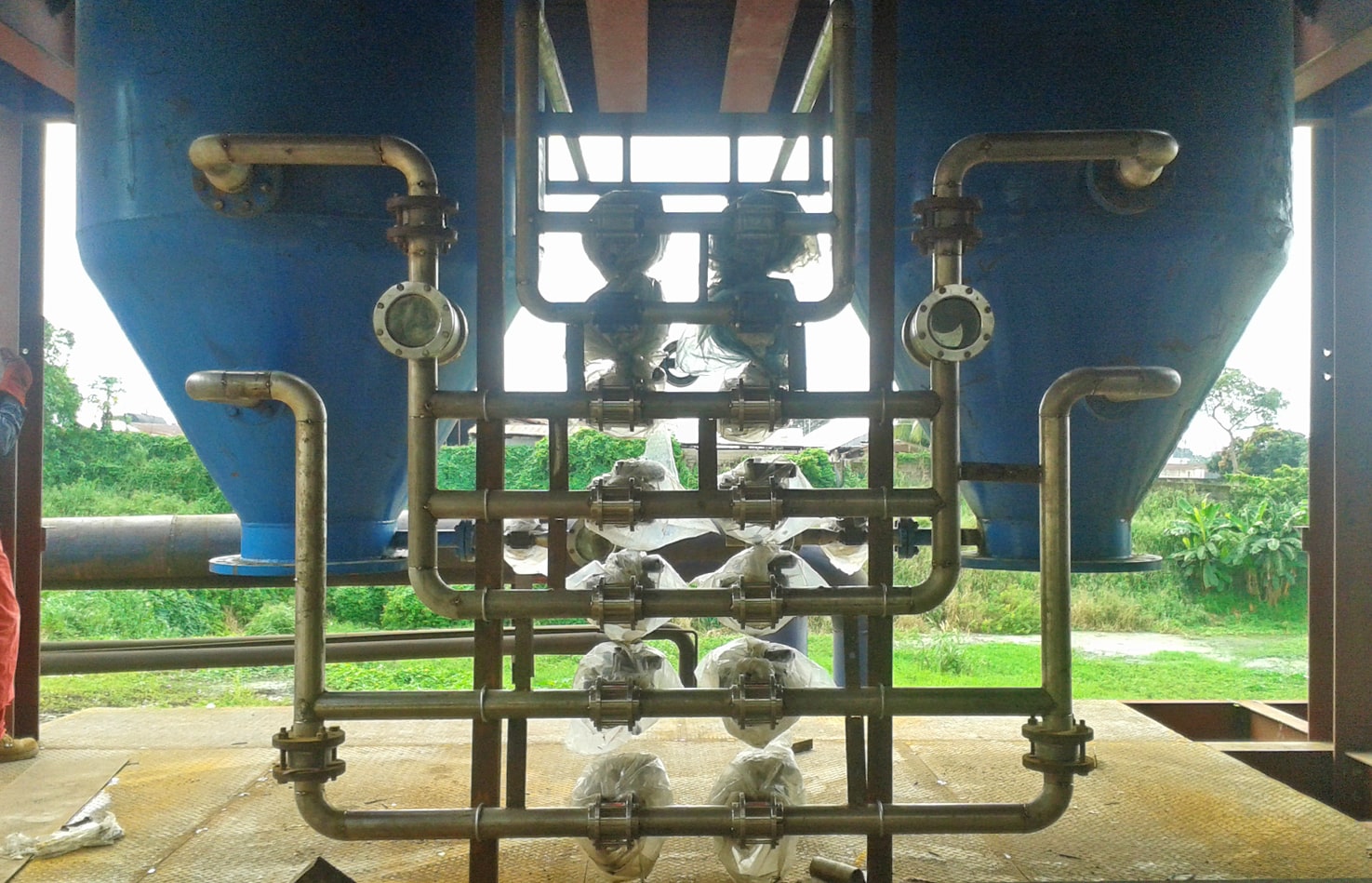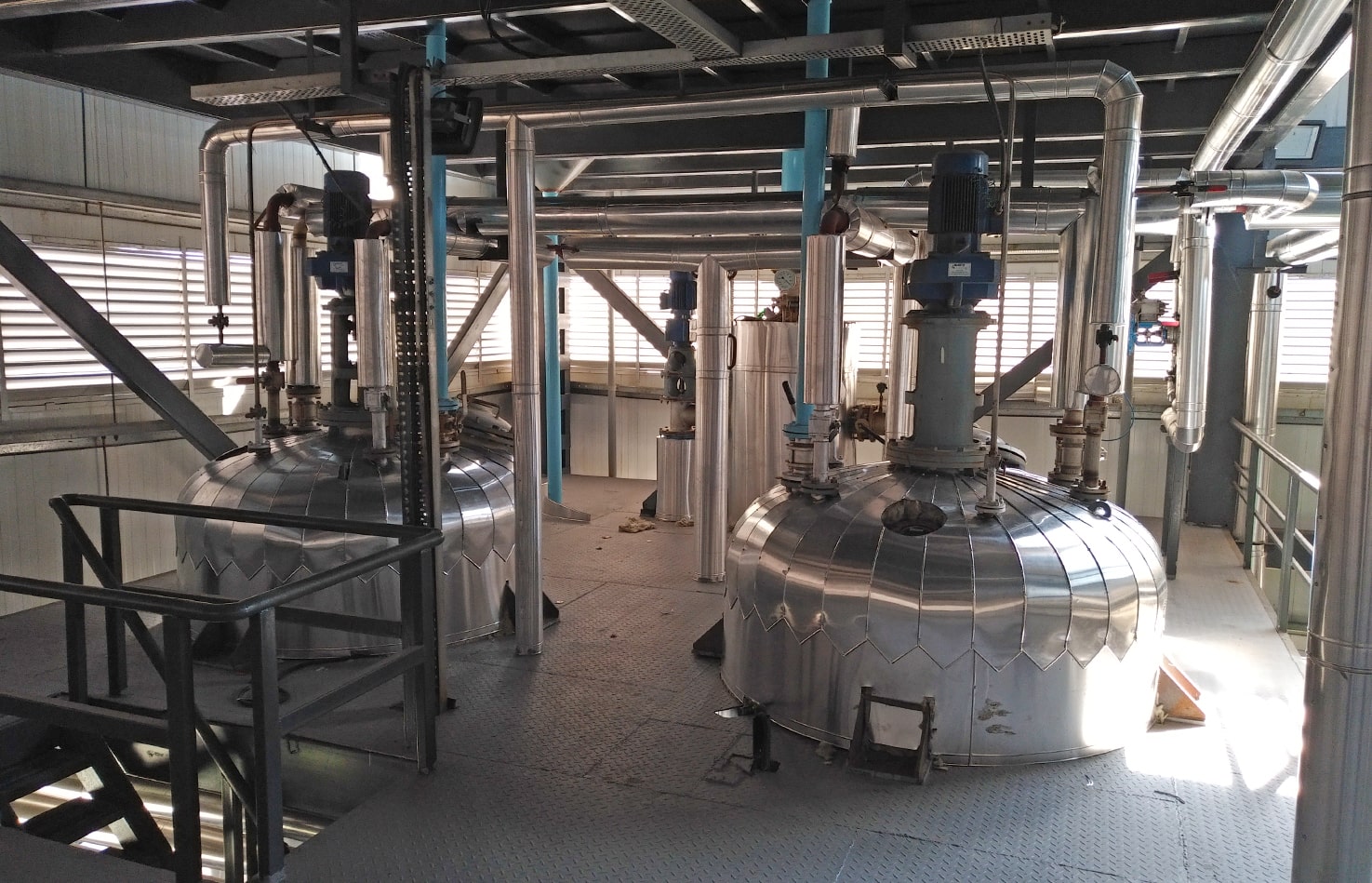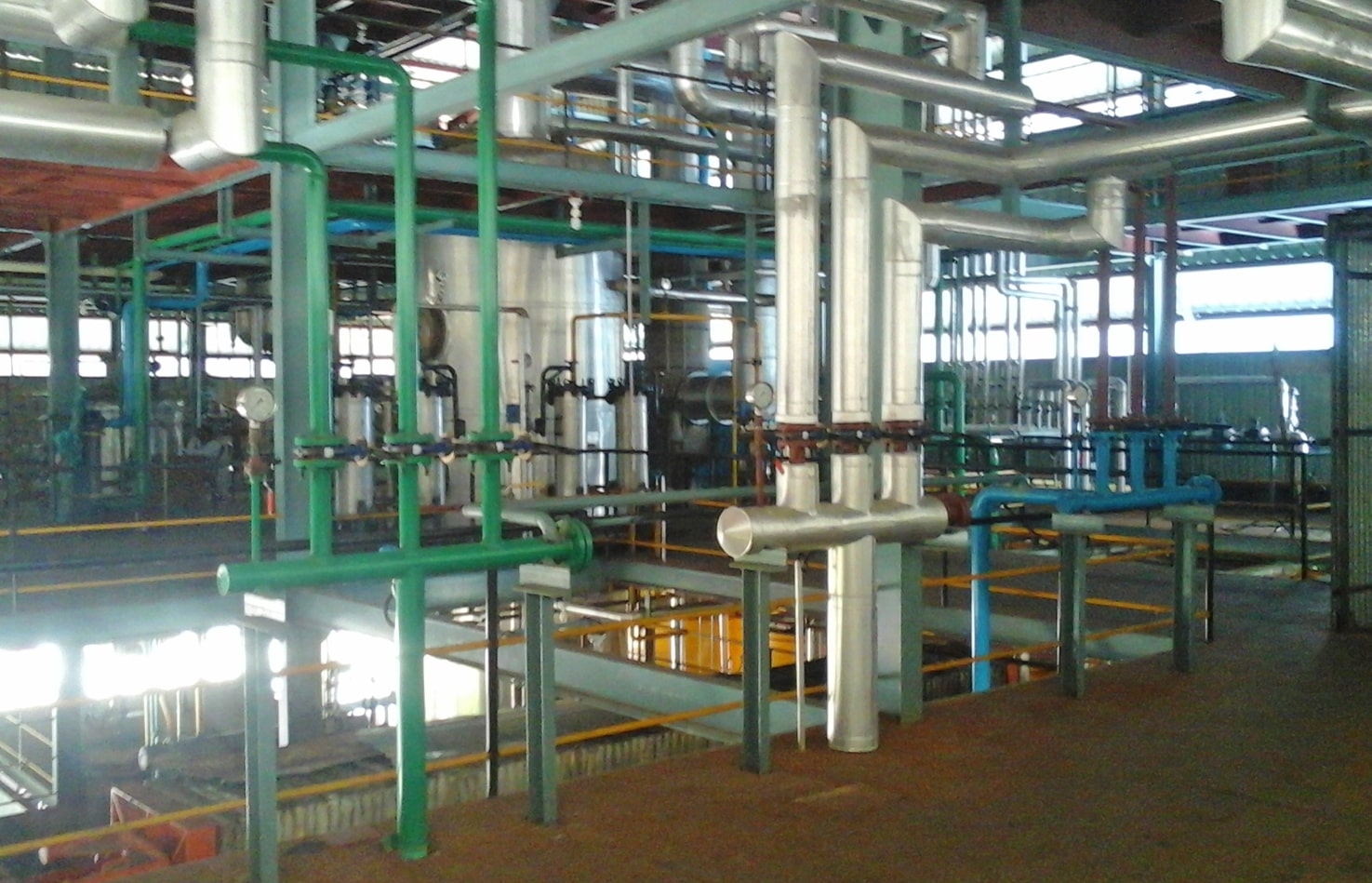- 1Mixing Chemical
Edible Oil Refining Bleaching Plant
Bleaching Plant
Bleaching Plant
The utilization of edible oil would be generally considered of a high grade with a low margin for error given the fact that it is consumed. Contaminants which adversely impact the appearance and performance of edible oils are very prevalent in the product during the process so far. Usually preceded by Degumming and alkali based processes, Bleaching removes detrimental contaminants that are otherwise not effectively removed earlier in the refining process.
As a process, Bleaching is simple. It involves the addition of a clay absorbent in the oil which effectively removes colour and reduces impurities such as chlorophyll, residual soap and gums, traces of metals etc. While the process may seem simple, the parameters under which it is conducted are critical. Moisture levels, temperature, contact time and vacuum are just a few of the parameters that affect the process. There are 4 processes via which bleaching can be executed:
- 2Bleaching
- 3Filtration
For the layman, bleaching simply improves oil quality through the interaction of the oil with the absorbent. The parameters around which the process is based, are altered to create the best possible environment for optimal Chemical Mixing and Bleaching.
Bleaching Process Of Vegetable Oil
The vegetable oil bleaching process is a crucial step in refining edible oils to remove impurities and improve their color, flavor, and shelf life.
The vegetable oil bleaching process begins with pre-treatment of the crude oil, which includes degumming and neutralization. Degumming removes phospholipids, while neutralization eliminates free fatty acids. Once these preliminary steps are complete, the oil is ready for the bleaching stage.
In the bleaching plant, the oil is mixed with bleaching earth or activated carbon, which are adsorbent materials used to attract and bind impurities. These impurities can include pigments like chlorophyll and carotenoids, as well as traces of metals and oxidation products that affect the oil's quality.
The process involves heating the oil to a specific temperature, usually between 85°C to 110°C (185°F to 230°F), to enhance the efficiency of the adsorbents. The oil-adsorbent mixture is then agitated to ensure thorough contact between the oil and the adsorbents. This mixture is typically processed under vacuum to prevent oxidation and degradation of the oil.
After sufficient contact time, which can vary depending on the type of oil and the extent of impurities, the oil is filtered to separate the spent adsorbents from the bleached oil. The filtration process is critical, as it ensures that no adsorbent residues remain in the final product.
The clarified oil, now free of unwanted colorants and contaminants, is then subjected to further refining steps, such as deodorization, where any remaining odors and volatile compounds are removed. This results in a high-quality, stable, and visually appealing vegetable oil suitable for consumption.
The vegetable oil bleaching process within a bleaching plant is a meticulously controlled operation designed to purify and enhance the quality of edible oils. By effectively removing impurities and improving the oil's properties, this process plays an essential role in the production of refined vegetable oils.
Why choose Muez Hest as the Bleaching Plant Manufacturers In India?
Choosing Muez Hest as the bleaching plant manufacturers in India offers several distinct advantages, making them a preferred choice for companies looking to refine vegetable oils. Here are some reasons to consider Muez Hest:
 Comprehensive Expertise and Custom Solutions:-
Comprehensive Expertise and Custom Solutions:-
Muez Hest specializes in providing fully customized solutions tailored to specific client needs. They have extensive experience in the edible oil refining industry, which ensures that their bleaching plants are designed with precision and meet high-quality standards.
 Advanced Technology:-
Advanced Technology:-
Muez Hest integrates state-of-the-art technology in their bleaching plants. This includes the use of advanced adsorbent materials like neutral/activated bleaching earth and carbon, which effectively remove impurities such as color pigments and residual soaps, enhancing the oil’s color and purity.
 Quality Assurance and ISO Certification:-
Quality Assurance and ISO Certification:-
Muez Hest holds ISO 9001:2015 certification, underscoring their commitment to quality. Their rigorous quality assurance processes ensure that every plant and piece of equipment adheres to high standards, providing reliable and efficient performance.
 Sustainability and Environmental Responsibility:-
Sustainability and Environmental Responsibility:-
The company emphasizes environmentally responsible practices, offering R&D-based solutions for eco-friendly oil refining processes. This commitment helps clients achieve sustainability goals while maintaining efficient operations.
 Extensive Industry Experience:-
Extensive Industry Experience:-
With over 30 years of experience and more than 400 completed projects worldwide, Muez Hest has built a robust reputation in the industry. Their global footprint and extensive portfolio reflect their capability to handle diverse and complex projects.
 Client-Centric Approach:-
Client-Centric Approach:-
Muez Hest is known for its client-centric approach, ensuring that each project is tailored to meet the unique requirements of the client. This personalized service helps in delivering solutions that are not only effective but also aligned with the client's operational goals and constraints.
These factors make Muez Hest a reliable and preferred choice for bleaching plant manufacturing in India, combining technological innovation, quality assurance, and a strong commitment to customer satisfaction.
Application
All Vegetable and Non Vegetable Fats and Oils

